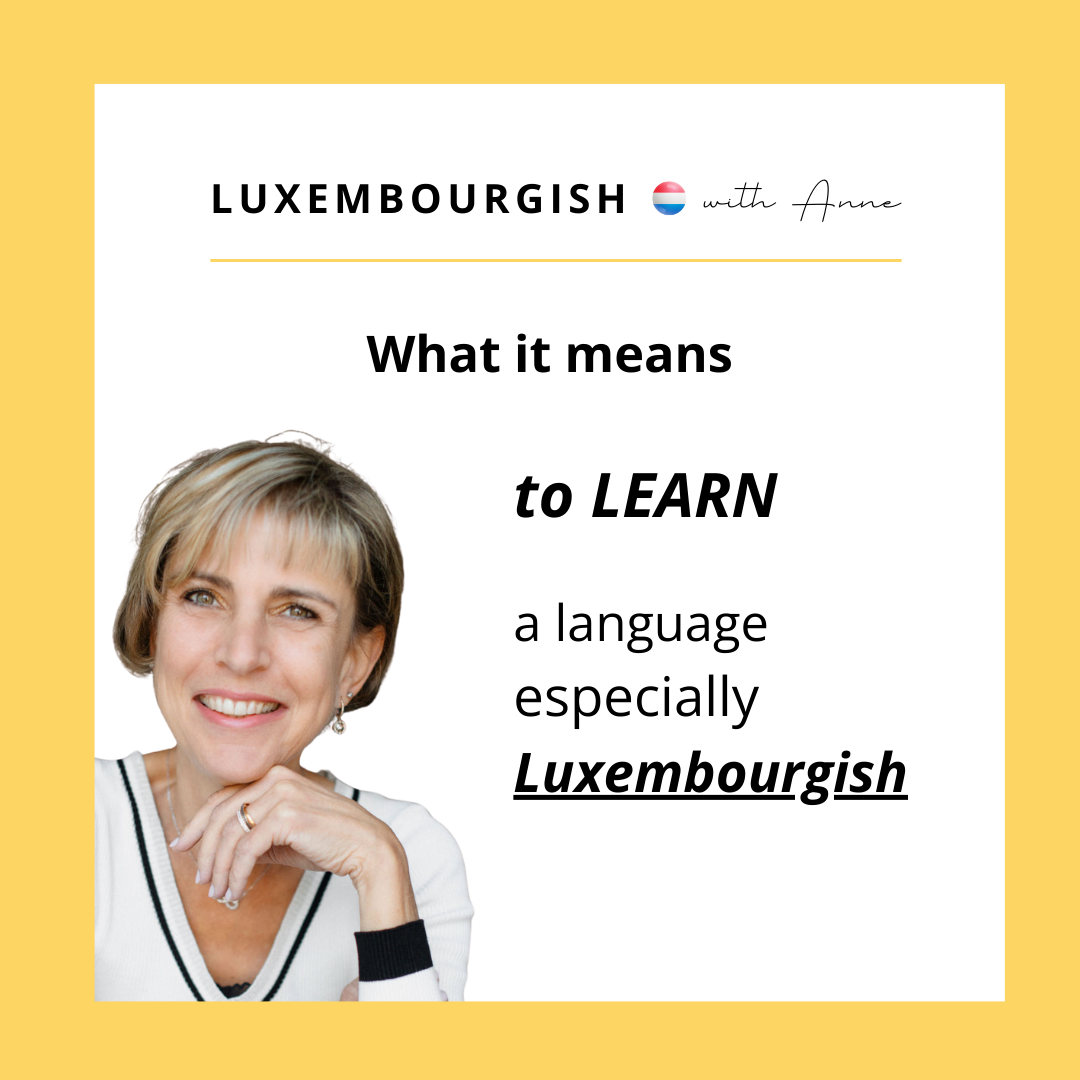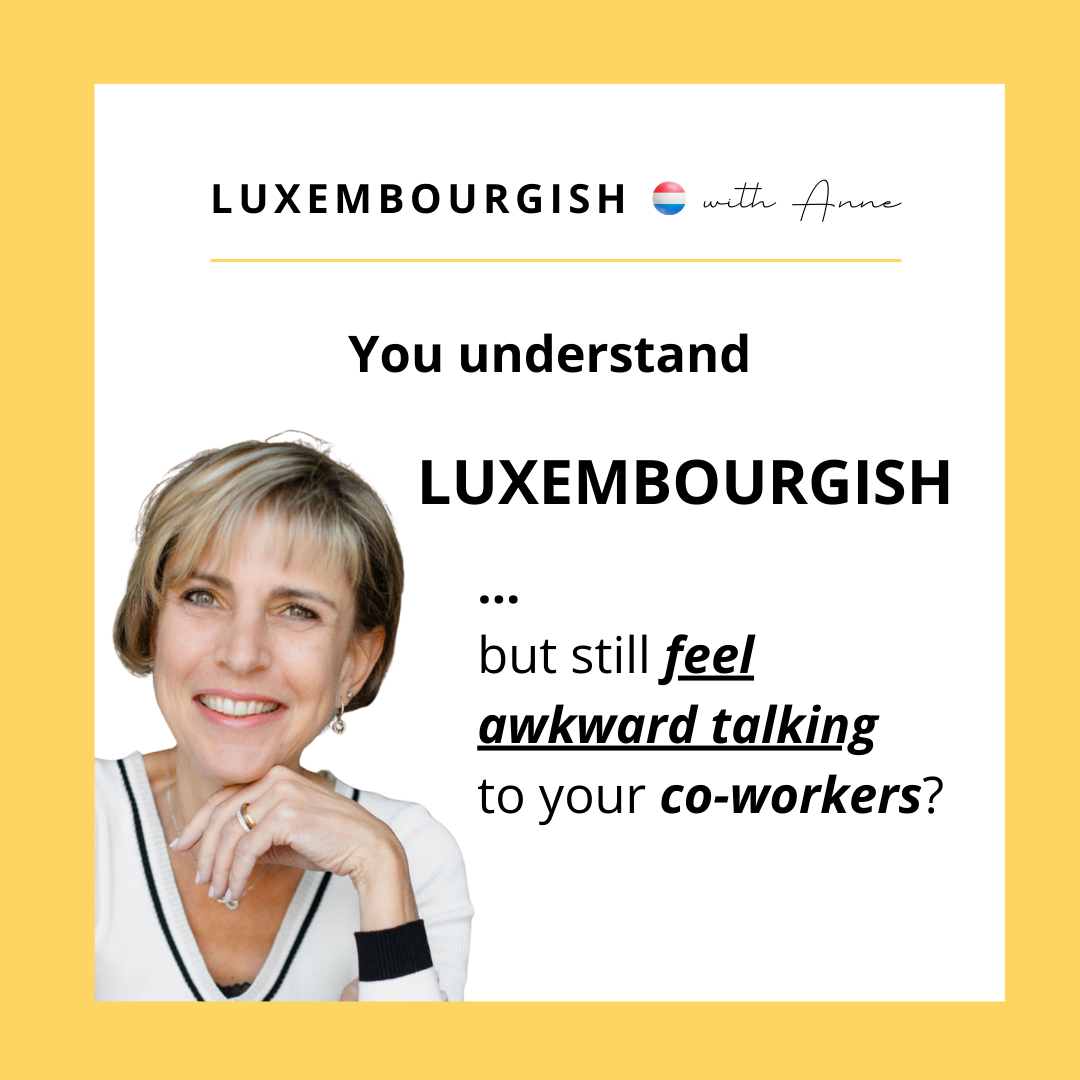A personal pronoun refers to a specific person or thing. Pronouns are simply small words which replace nouns.They refer to the person/people or to things spoken about, for example:
Dat ass de Marc. Hien ass 8 Joer al. – That’s Marc. He is 8 years old.
All you need to know about Pronouns referring to things
We will cover in this lesson only the pronouns referring to thing(s) / animals spoken about (an object or animal).
Learn more about the personal pronouns – referring to a person or people – in this lesson.
Whereas in English you would say ‘it’, in Luxembourgish it could be en or se or et, depending on the gender of the noun they replace.
The Pronoun referring to feminine things – se
Let’s imagine that you have a conversation with a colleague and he / she asks you:
- Um wéi vill Auer ass d’Reunioun? – At what time is the meeting?
Now you can answer by repeating the word d’Reunioun:
- D’Reunioun ass um zwou Auer. – The meeting is at 2pm.
But in natural spoken Luxembourgish you won’t repeat d’Reunioun, instead you would replace it by using the pronoun se for feminine things →
- Se ass um zwou Auer.
Anert Beispill – other example
D’Kaz ass schéin. Se ass schéin. – The cat is beautiful. It / she is beautiful.
The Pronoun referring to masculine things – en
Let’s imagine that you intend to buy the mobile phone of a friend and you ask him / her:
- Wéi vill verkeefs du den Handy? – How much do you sell the mobile phone?
Now he / she may answer by repeating the word den Handy:
- Ech verkafen den Handy fir 250€. – I sell the mobile phone for 250€.
But in natural spoken language you won’t repeat den Handy instead you would replace it by using the pronoun en for masculine things →
- Ech verkafen e* fir 250€. – I sell it for 250€.
*Don’t forget the n-rule!
Anert Beispill – other example
De Schockela ass gutt. En ass gutt. – The chocolate is good. It is good.
The Pronoun referring to neuter things – et
Let’s imagine that you have a conversation with a friend about his new flat:
- Wou ass d’ Appartment dann an der Stad? – Where is the flat located in Luxembourg city?
Now he / she may answer by repeating the word d’Appartement:
- Mäin Appartment ass zu Bouneweg. – My flat is in Bonnevoie.
But normally you won’t repeat d’ Appartment instead you would replace it by using the pronoun et for neuter things →
- Et ass zu Bouneweg. – It is in Bonnevoie.
Remark:
Et ass is reduced to ‘t ass in spoken Luxembourgish: →
’t ass zu Bouneweg.
Anert Beispill – other example
D’Haus ass zimlech nei. ’t ass zimlech nei. – The house is quite new. It’s quite new.
Watch this lesson on Youtube!
Pronoun referring to plural things – se
Let’s imagine that you ask a waiter for the toilets in a restaurant:
- Wou sinn d’Toiletten wann ech gelift? – Where are the toilets, please?
Now you may answer by repeating the word d’Toiletten:
- D’Toilette sinn um 1. Stack. – The toilets are on the 1. floor.
But you can replace d’Toiletten by using the pronoun se for plural things →
- Se sinn um 1. Stack. – They are on the 1. floor.
Anert Beispill – other example
D’ Kleeder sinn al. Se sinn al. – The clothes are old. They are old.
A1 Foundation and dialogues – the self-paced online course – the perfect fir for absolute beginners!
Übung (exercise)
Find the correct pronoun:
- Wou sinn d’Tasen? ______ sinn am Kicheschaf. (d’Tasen= the cups)
- Hues du mäi Brëll gesinn? Nee, ech hunn ______ net gesinn. (mäi Brëll = my glasses)
- Wéi vill kascht d’Luucht? _______ kascht 99€. (d’Luucht = the lamp)
- Ass dat e neit Hiem? Jo, ech hunn ______ an der Vakanz kaaft. (en Hiem = a shirt)
- D’Dier steet jo grouss op. Maach ______ zou, w.e.g. (d’Dier = the door)
- Ech hu gëschter däi Buch fäerdeg gelies. ______ ass genial. (d’Buch = the book)
- Mir hunn en Hond kritt. ______ heescht Melody. (en Hond = a dog)
- Wou keefs du däi Geméis? Ech kafen ____ um Maart. (d’Geméis = the vegetables)
- Hues du nei Schong? Nee, ech hu ______ schonn eng Zäitchen. (Schong = shoes)
- Wou hues du den Auto geparkt? Ech hunn _____ an d’Garage geparkt. (den Auto =
the car)
Download the PDF to get the solutions of the exercise and to practice what you’ve learnt in this lesson!
I hope you liked it and found it useful. And …. why not sharing this lesson with your friends:-)
If you want to learn Luxembourgish from scratch but you don’t have time to attend classes then this complete self-paced online course is for you:




